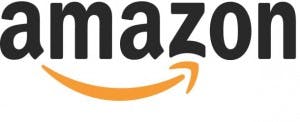
I have some serious concerns with Prime Video
Amazon directly competes with Netflix, Inc. (NASDAQ:NFLX) in the movie streaming space because Amazon.com, Inc. (NASDAQ:AMZN) believes that by providing a large content network, consumers will more easily purchase products and services through its Amazon Prime subscription service. I am skeptical of Amazon’s product positioning when basing it strictly from a financial standpoint. The company’s attempt at improving its profitability through a movie subscription service through additional cross-sells hasn’t been reflected in the financial data.

Source: Netflix
The above diagram is essentially trying to illustrate the amount of top content each firm has. The content figures clearly illustrate that Netflix is substantially ahead of Amazon.com, Inc. (NASDAQ:AMZN) Prime. So, rather than Amazon Prime trying to compete with Netflix directly, it would be wiser for Amazon Prime to provide content that Netflix, Inc. (NASDAQ:NFLX) simply doesn’t have. The problem with that of course is that providing content that others do not have would often involve the production of individual content. To do this, Amazon plans on producing 14 test episodes of comedies and children’s series, these TV series are something that Amazon instant video will provide at no additional cost to Amazon Prime subscribers.
What Amazon lost
I also want to point out that Amazon.com, Inc. (NASDAQ:AMZN) could end up wasting a lot of shareholder equity based on the figure below.

Source: Ycharts
Amazon first released its Amazon Instant Video in 2006. Amazon started committing serious financial resources towards its Amazon Instant Video a couple of years ago, whereby it provided a content collection of 5,000 movies and TV shows. I pulled up a chart showing the net profitability of the company from the beginning of 2011 (approximately when the company invested heavily into Amazon Instant Video) up until the present.
The company’s profitability declined from 2% to (2)% up until the middle of 2012. After that, the company was able to improve its net profitability to 0.51%. The company’s improvement in profitability can be attributed to the fact it slowed down its content acquisition efforts as it was Netflix, Inc. (NASDAQ:NFLX) that won The Walt Disney Company (NYSE:DIS) and Time Warner Inc (NYSE:TWX) with multi-million dollar deals that effectively shut Amazon out of the market for blockbuster hits at the box-office.
I am also a skeptic of Amazon.com, Inc. (NASDAQ:AMZN)’s ability to transform its Instant Video into a serious competitor with Netflix as the company’s brand-extension confuses from the Amazon brand’s original identity of web-based shopping. In The 22 Immutable Laws of Marketing, the authors doubled down on their anti-extension advice saying “a line extension ultimate leads to oblivion” and warning that to be successful you have to narrow a brand’s focus.
In this specific case with Amazon, I am heavily favoring the idea that brand extension could be a disaster. Currently, Amazon is expanding the brand identity by foraying into movie streaming services, but it bundles the value of Amazon Prime with instant streaming. So now, consumers have to pay an additional amount of money for an added service that consumers may not want.
For this reason, from a microeconomics standpoint, I believe that some consumers are paying up for additional services that other consumers may not want which may mean potential dead-weight loss due to overproduction. If that is the case, the company is losing out by widening the brands focus to mean less of what it was originally intended for and at the same time, consumers are over-paying for unnecessary add-ons.
The CEO failed to understand that narrowing a brand’s focus to mean “one thing” would have meant the difference between winning major content deals with the likes of Time Warner and Walt Disney.
In theory, it wasn’t that Walt Disney and Time Warner weren’t given a large enough of an amount of money, but rather, the business interests of Walt Disney and Time Warner coincided better with Netflix, Inc. (NASDAQ:NFLX) because Netflix brought a fuller and more unifying movie watching experience than what Amazon Prime Video could provide.
Yahoo! has a stronger strategy than Amazon
Yahoo! Inc. (NASDAQ:YHOO) is in talks to buy out Hulu. I estimated that acquiring Hulu would cost in excess of $2 billion.
Marissa Mayer’s strategy in movie streaming by buying out Hulu is stronger than Amazon, because Hulu already has a large content library (not as big as Amazon or Netflix, Inc. (NASDAQ:NFLX)), but at least it has one. It also has a user base of approximately 4 million subscribers, giving Yahoo! Inc. (NASDAQ:YHOO) an effective base to grow from, and if Yahoo! Inc. (NASDAQ:YHOO) was to expand Hulu’s services in key international markets, it can actually carve out a niche for itself while co-existing with Netflix. Something Amazon may not be able to do because Amazon’s intent is to compete directly with Netflix, whereas Hulu focuses more on TV shows and a narrower target market.
If Yahoo! buys out Hulu, it is unlikely that Yahoo! Inc. (NASDAQ:YHOO) would risk changing Hulu’s brand name into Yahoo! Inc. (NASDAQ:YHOO) Hulu, or pull a brand-extension stunt that could hurt the company’s performance. Imagine if every Procter & Gamble product had the name Procter & Gamble in it, would you honestly be able to distinguish the difference between Olay, Vicks, Tide, and Listerine if the brand name Procter & Gamble was in each of these different products? Having separate brand names help consumers to differentiate products and services, which is why Hulu could be the best investment decision Yahoo! Inc. (NASDAQ:YHOO) could make in light of its current financial position.
Conclusion
I believe that Amazon.com, Inc. (NASDAQ:AMZN) Instant Video will not be able to make any significant advances into movie streaming over the next ten-years. Netflix, Inc. (NASDAQ:NFLX) is more heavily focused on committing resources into the streaming business than Amazon is. Netflix is not focused on its bottom-line, but rather increasing the amount of cash generated from operations which is exactly why Netflix can stand toe to toe with Amazon. The CEO of Netflix has shown time and time again that it will never sacrifice long-term profitability in favor of short-term gains, which is why Netflix seems to be the best investment opportunity.
The article Does Amazon Stand a Chance Against Netflix and Yahoo? originally appeared on Fool.com and is written by Alexander Cho.
Alexander Cho has no position in any stocks mentioned. The Motley Fool recommends Amazon.com and Netflix. The Motley Fool owns shares of Amazon.com and Netflix. Alexander is a member of The Motley Fool Blog Network — entries represent the personal opinion of the blogger and are not formally edited.
Copyright © 1995 – 2013 The Motley Fool, LLC. All rights reserved. The Motley Fool has a disclosure policy.

